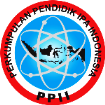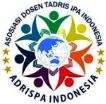Kemampuan Argumentasi Ilmiah Calon Guru IPA melalui Pendekatan MIKiR selama Pandemi Covid-19
Abstract
Since the Covid-19 pandemic, learning at the university or school level has implemented online learning. Even though the learning is conducted online, the teacher candidate's scientific argumentation skills must be trained. One way is through the MIKIR approach. The purpose of this research is analyzing the science pre-service teachers’ scientific argumentation skills by using MIKIR approach during pandemic covid-19. This type of research is a quasi-experimental study with a one-shot case study design. The research sample was 50 pre-service teachers. The instrument was an argumentation essay test based on the argumentation aspects according to Toulmin; claim, data, warrant and backing. The science pre-service teachers’ scientific argumentation skills will be analyzed through the one-sample T test assisted by the SPSS version 22 application. The results of this study is shown by the T score, 0.010> 0.05, is larger than a significance level. It means that MIKIR approach during pandemic covid-19 can practice significantly to the scientific argumentation skills of science pre-service teachers.
Keywords: science pre-service teachers’ scientific argumentation skills, MIKIR approach, science learning during pandemic covid-19
ABSTRAK
Sejak pandemi covid-19, pembelajaran baik di tingkat universitas atau sekolah menerapkan pembelajaran daring (online). Meskipun pembelajaran dilakukan secara daring, kemampuan argumentasi ilmiah calon guru IPA tetap harus dilatihkan. Salah satu caranya adalah melalui pendekatan MIKiR. Adapun tujuan penelitian ini adalah mengukur pengaruh pendekatan MIKiR dalam pembelajaran online terhadap kemampuan argumentasi ilmiah calon guru. Jenis penelitian ini adalah penelitian kuasi eksperimen dengan desain one-shot case study. Sampel penelitian adalah 50 calon guru IPA. Instrumen yang digunakan berupa tes argumentasi berupa soal esai berdasarkan aspek argumentasi menurut Toulmin; claim, data, warrant dan backing. Kemampuan argumentasi ilmiah calon guru IPA akan dideskripsikan dan dianalisis melalui uji T satu sampel berbantuan aplikasi SPSS versi 22. Hasil penelitian ditemukan skor uji T 0,010 > 0,05 yang artinya pendekatan MIKiR selama pandemi covid-19 dapat melatihkan kemampuan argumentasi calon guru IPA secara signifikan.
Kata kunci: kemampuan argumentasi ilmiah calon guru IPA, metode MIKiR, pembelajaran IPA selama pandemic covid-19
Full Text:
PDFReferences
Alexaindre, J. & Rodriguez, A.B. (2000). Doing the Lesson or Doing Science: Argument in High School Genetics. John Wiley & Sons, Inc.
Ardaya, D. A. (2016). Penerapan Pendekatan Saintifik Untuk Meningkatkan Pemahaman Konsep Materi Ipa Siswa Sekolah Dasar. Jurnal Pendidikan Guru Sekolah Dasar, 1(1), 72–83. https://doi.org/10.17509/jpgsd.v1i1.9065
Baǧ, H., & Çalik, M. (2017). A thematic review of argumentation studies at the K-8 level. Egitim ve Bilim, 42(190), 281–303. https://doi.org/10.15390/EB.2017.6845
Berland, L. K., & Hammer, D. (2012). Framing for scientific argumentation. Journal of Research in Science Teaching, 49(1), 68–94. https://doi.org/10.1002/tea.20446
Diniya, D. (2019). An Investigation of Scientific Argumentation Skills by using Analogical Mapping-based on Inquiry Learning between Experiment and Control Group. 329–335.
Diniya, D., Rusdiana, D., & Hernani, H. (2019). Promoting coupled-inquiry cycle through shared curricular integration models to enhance students argumentation. Journal of Physics: Conference Series, 1157(2). https://doi.org/10.1088/1742-6596/1157/2/022029
Diniya, & Rusdiana, D. (2018). Improving Students’ Argumentation by Providing Analogical Mapping-Based Through Lab Inquiry for Science Class. IOP Conference Series: Materials Science and Engineering, 288(1). https://doi.org/10.1088/1757-899X/288/1/012053
Effendi, D., & Wahidy, A. (2019). Pemanfaatan Teknologi dalam Proses Pembelajaran Menuju Pembelajaran Abad 21. Pemanfaatan Teknologi Dalam Proses Pembelajaran Menuju Pembelajaran Abad 21, 2, 125–129. https://jurnal.univpgri-palembang.ac.id/index.php/Prosidingpps/article/view/2977/2799
Fraenkel, Wallen & Hyun. (2012). How to Design and Evaluate Research in Education (Eight Edition). New York: McGraw Hill International Edition
Gultepe, N. & Kose, M. (2016). Which is More Effective: In Groups or as Individuals?. (Online). Diunduh dari https://www.researchgate.net/publication/303820799_WHICH_IS_MORE_EFFECTIVE_IN_GROUPS_OR_AS_INDIVIDUALS pada 5 Desember 2017.
Jacobsen, D.A., Eggen P. & Kauchak D. (2009). Methods for Teaching: Promoting Student Learning in K-12 Classroom. New Jersey: Pearson.
Lazarou, D., Erduran, S., & Sutherland, R. (2017). Argumentation in science education as an evolving concept: Following the object of activity. Learning, Culture and Social Interaction, 14(May), 51–66. https://doi.org/10.1016/j.lcsi.2017.05.003
Lazarou, D., Sutherland, R., & Erduran, S. (2016). Argumentation in science education as a systemic activity: An activity-theoretical perspective. International Journal of Educational Research, 79, 150–166. https://doi.org/10.1016/j.ijer.2016.07.008
McNeill, K. L., Katsh-Singer, R., González-Howard, M., & Loper, S. (2016). Factors impacting teachers’ argumentation instruction in their science classrooms. International Journal of Science Education, 38(12), 2026–2046. https://doi.org/10.1080/09500693.2016.1221547
Moon, A., Stanford, C., Cole, R., & Towns, M. (2016). The nature of students’ chemical reasoning employed in scientific argumentation in physical chemistry. Chemistry Education Research and Practice, 17(2), 353–364. https://doi.org/10.1039/c5rp00207a
Nova, T. L., Ilhami, A., Islam, U., Sultan, N., & Kasim, S. (2020). Analysis of Pre-service Science Teachers ’ Digital Literacy Through Workshop of Optimization Microsoft Office Software Usage. 3(1), 70–78.
Pernantah, P. S. (2019). Desain Skenario Pembelajaran Aktif Dengan Metode “Mikir” Pada Mata Kuliah Pendidikan IPS. Indonesian Journal of Social Science Education (IJSSE), 1(2), 145–155.
Pratiwi, S. N., Cari, C., Aminah, N. S., & Affandy, H. (2019). Problem-Based Learning with Argumentation Skills to Improve Students’ Concept Understanding. Journal of Physics: Conference Series, 1155(1). https://doi.org/10.1088/1742-6596/1155/1/012065
Rohmawati, S. S. S. (2018). Penerapan Pendekatan Saintifik pada Mata Pelajaran IPA di MTs Putri Nurul Masyithoh Lumajang. Jurnal Kajian Teknologi Pendidikan, 1, 205–212. http://journal2.um.ac.id/index.php/jktp/article/view/4543
Sudjana, N., Ibrahim. (2014). Penelitian dan Penilaian Pendidikan. Bandung:Sinar Baru Algesindo.
Syafaren, A., Yustina, Y., & Mahadi, I. (2019). Pembelajaran Ipa Berbasiskan Integrasi Inkuiri Terbimbing Dengan Numbered Heads Together (Nht) Dalam Meningkatkan Motivasi Belajar. Journal of Natural Science and Integration, 2(1), 1. https://doi.org/10.24014/jnsi.v2i1.7109
DOI: http://dx.doi.org/10.24014/jnsi.v4i1.12770
Refbacks
- There are currently no refbacks.

Journal of Natural Science and Integration
E-ISSN: 2620-5092 | P-ISSN: 2620-4967
Published By:
Department of Natural Sciences Educations, Faculty of Education and Teacher Training, State Islamic University of Sultan Syarif Kasim Riau, Indonesia
Mailing Address:
Jl. H.R Soebrantas Km. 15 No. 155 Kelurahan Simpang Baru Kecamatan Tuah Madani, Pekanbaru, Riau, Indonesia
email: jnsi.tadrisipa@uin-suska.ac.id
Indexed By:
Journal of Natural Science and Integration is licensed under a Creative Commons Attribution 4.0 International License.


_-_Copyy2.png)






.jpg)
.png)
.jpg)
.jpg)




